 It remains to be seen how soon the summer romance of Republican voters with Donald Trump will fade as we move into the serious political season that follows Labor Day. I continue to believe that the nomination will end up going to one of the many other Republican candidates who are more responsible, more electable, and possessed of more conservative principles and experience in electoral politics and public service than Trump. And when and if that happens, a major reason why will be that oft-maligned bugaboo of elections: spending on negative ads. In fact, Trump’s rise – and what will need to be done to bring about his fall – illustrates why money in politics is a good and necessary thing, and why replacing our system with one that restricts the amounts that can be donated and spent on elections would only empower people like Trump.
It remains to be seen how soon the summer romance of Republican voters with Donald Trump will fade as we move into the serious political season that follows Labor Day. I continue to believe that the nomination will end up going to one of the many other Republican candidates who are more responsible, more electable, and possessed of more conservative principles and experience in electoral politics and public service than Trump. And when and if that happens, a major reason why will be that oft-maligned bugaboo of elections: spending on negative ads. In fact, Trump’s rise – and what will need to be done to bring about his fall – illustrates why money in politics is a good and necessary thing, and why replacing our system with one that restricts the amounts that can be donated and spent on elections would only empower people like Trump.
There are a variety of reasons why Trump has been riding high in polls for most of the past two months, but as political scientist John Sides has detailed at the Washington Post’s Monkey Cage blog, Trump’s poll standing correlates highly with his massive advantage in free mainstream media coverage. You can read Sides’ whole analysis here and here, and if you doubt this thesis, you should; I’ll just offer a brief quote here and one of his more illustrative charts:
[V]oters don’t change their minds without new information. No one wakes up on June 17 and randomly decides on their own that Donald Trump should be the Republican nominee for president. People’s minds change because they are hearing information that they haven’t heard before.
In this case, people are being bombarded with news stories about Trump. When the news media suddenly focuses on a candidate that hasn’t previously received much coverage, Vavreck and I refer to this as the “discovery” phase of that candidate’s campaign. The resulting spike in news coverage then drives the poll numbers.
In our book on the 2012 presidential election, “The Gamble,” Vavreck and I documented this pattern over and over in 2011—for Perry, Herman Cain, and Newt Gingrich.
Here’s Sides’s graph comparing poll standing and media coverage for the various GOP candidates – Sides notes that the correlation here is 0.96 (1.0 being the highest possible correlation), i.e., there’s almost an exact match between news coverage and poll position:

One analysis of major-network coverage from two weeks in August found Trump with 30 times the coverage of [mc_name name=’Sen. Marco Rubio (R-FL)’ chamber=’senate’ mcid=’R000595′ ]; Trump got 36 minutes of prime-time network coverage compared to 11 seconds for Ben Carson, six seconds for Rick Perry, three seconds for [mc_name name=’Sen. Ted Cruz (R-TX)’ chamber=’senate’ mcid=’C001098′ ], and no coverage at all for Bobby Jindal.
The poll trends, in turn, feed the political media’s worst instinctive tendency to assume that all present trends will continue forever, and have observers like Brian Beutler of the New Republic claiming that Trump is now the favorite to win the nomination, despite what we know about summer polling (Neil Stevens has more on these kinds of poll surges and why the summer polls tend not to be all that predictive).
How can you break a pattern like this? Why are the leaders this time of year often quite different from the people left standing when voting starts in February? Well, Nate Cohn of the New York Times notes that more press coverage can eventually turn negative, but of course that depends on the choices of the media and the nature of the candidate. The more direct approach, time-tested in political campaigns as long as there have been campaigns, is to run ads attacking the opposing candidate, providing the very sort of “new information” Sides references. And that’s exactly what’s about to happen, as word comes this morning that Jeb Bush is going head-on at Trump with a new ad showing in his own quotes how Trump is a phony conservative:
Whatever you think of Jeb, he’s got the money to put this message across, and we’ll likely see a lot more of it from him and others. And in evaluating where the campaign is headed from here, it’s kind of amazing to see the sorts of people who bemoan the influence of money in politics forgetting that money hasn’t gotten off the bench yet. A late July Santorum ad knocking Mike Huckabee and [mc_name name=’Sen. Rand Paul (R-KY)’ chamber=’senate’ mcid=’P000603′ ] was arguably the first negative ad in the GOP primaries this cycle. Ad spending, while ahead of this time in 2012, is still a drop in the bucket compared to where it will end up. Only about $8 million in total was spent before the first debate. From NBC News, more recent numbers:
[B]ackers of John Kasich have spent the most money to date of any 2016 contender, with his campaign and pro-Kasich group New Day for America dropping more than $3.5 million in ad money on New Hampshire so far.
Conservative Solutions Project, a super PAC boosting Marco Rubio, has spent $2.6 million on national cable ads to date, while a series of pro-Bobby Jindal groups have doled out $1.5 million for ads so far – all in the early caucus state of Iowa.
Other big spenders include Chris Christie’s campaign and his America Leads PAC, which have put a combined $1.4 million into New Hampshire TV ads, and Rick Perry’s Opportunity and Freedom PAC, which has spent almost $815,000 in Iowa alone.
Given how much the other candidates still have to do to overcome the name-recognition advantage of Trump and Jeb, most of this is positive, meet-the-candidates stuff – Kasich’s ad blitz in New Hampshire references Trump only to use a soundbite of him calling the other candidates clueless. By contrast, Mitt Romney ended up spending $76.6 million by the end of the 2012 primaries, much of it slash-and-burn assaults on Newt Gingrich and other opponents. Some estimates are that we’ll see up to $4.4 billion spent by Election Day 2016 (including the general election, which obviously constitutes the majority of that). All that money and all those ads will have a major impact on informing the choices of the voters, both in letting them meet the alternatives and in hearing the strongest reasons to vote against the frontrunner. And with the first votes being cast a month later this time than in 2012 (when the Iowa Caucus was January 3), we still have five solid months of campaigning between us and the start of the balloting. Even by the end of February, only 193 out of 2,470 convention delegates will have been selected (almost 20% of delegates will be selected between May 3 and June 7, 2016):

We’ve a very long road still ahead of us.
I’m turning down millions of dollars of campaign contributions—feel totally stupid doing so, but hope it is appreciated by the voters.
— Donald J. Trump (@realDonaldTrump) September 1, 2015
Now, notice what you didn’t see in the writeups and charts of spending so far: ad spending by Donald Trump. He’s scarcely spent a dime. He doesn’t have to. He’s very, very famous – was famous for years and years before he became a candidate. He had his own TV shows. And now the media is covering his every move. He posts video clips to Instagram and depends on reporters to circulate them. And not one of these advantages would be affected by campaign finance regulation or public financing of campaigns.
But for candidates who don’t have a ton of wealth or fame going into the election and aren’t favored with lots of press coverage, there’s no substitute for raising money from donors – donors with many motives, of course, but among them the desire to choose a more responsible standard-bearer than Trump – and spending that money informing the electorate. That’s how our system works. And a system without that check would put many more of our elections at the mercy of rich celebrity dilettantes who don’t need to run ads or even say anything particularly specific. For Republicans in particular, a system without privately-funded political speech would put us at the mercy of having our candidate handpicked by the media, which would dearly love to saddle us with Trump.
You may not like the spectacle of politicians spending a ton of their time begging for checks from favor-seekers, or of the post-Citizens United phenomenon of tycoon-funded SuperPACs, or the daily barrage of emails and phone calls soliciting your money, or the saturation of the airwaves with negative ads. Really, nobody likes our current system, and nobody would like a freer system that would exist without the labyrinth of campaign finance rules that we already have. But like democracy and the free market, it’s better than any alternative because it keeps the process decentralized – free of government, out of the control of the handful of media gatekeepers who could decide by themselves to give 30 or 300 or 3000 times as much coverage to a guy like Trump as a guy like Rubio or Cruz. It gives the best candidates a chance of fighting back against celebrity billionaires who don’t even need to advertise, and gives rich people who aren’t good at politics and don’t belong in public service the ability to finance people who are.
If you don’t like Donald Trump and don’t want more like him in politics, thank your lucky stars for money in politics.



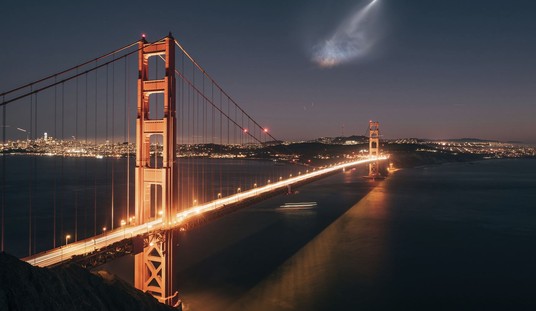


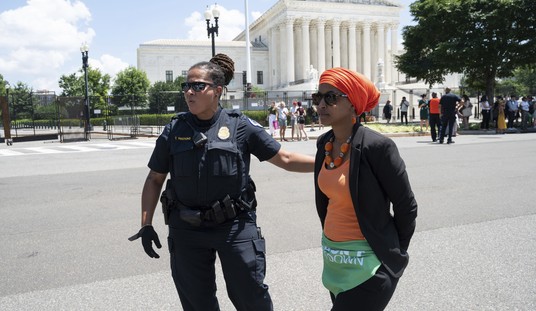



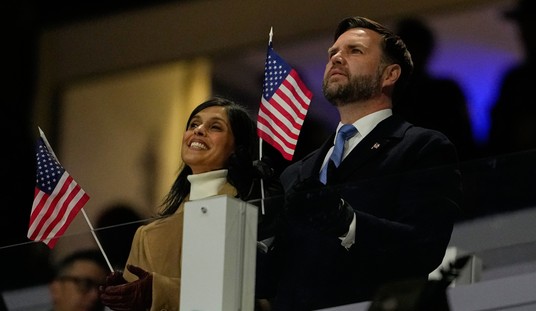

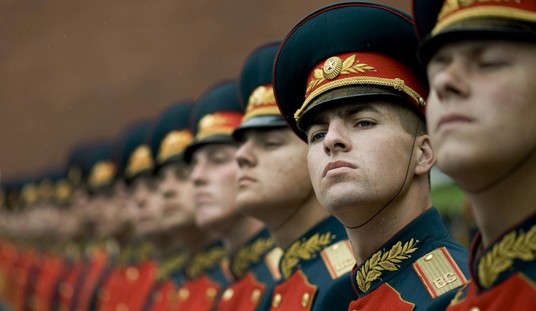
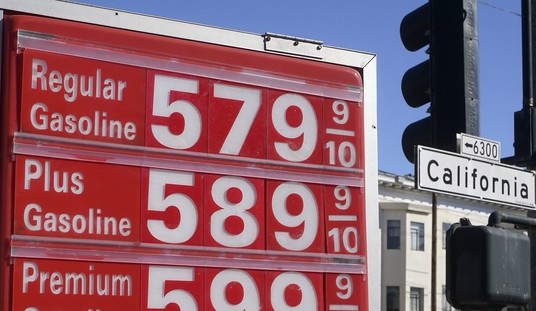
Join the conversation as a VIP Member